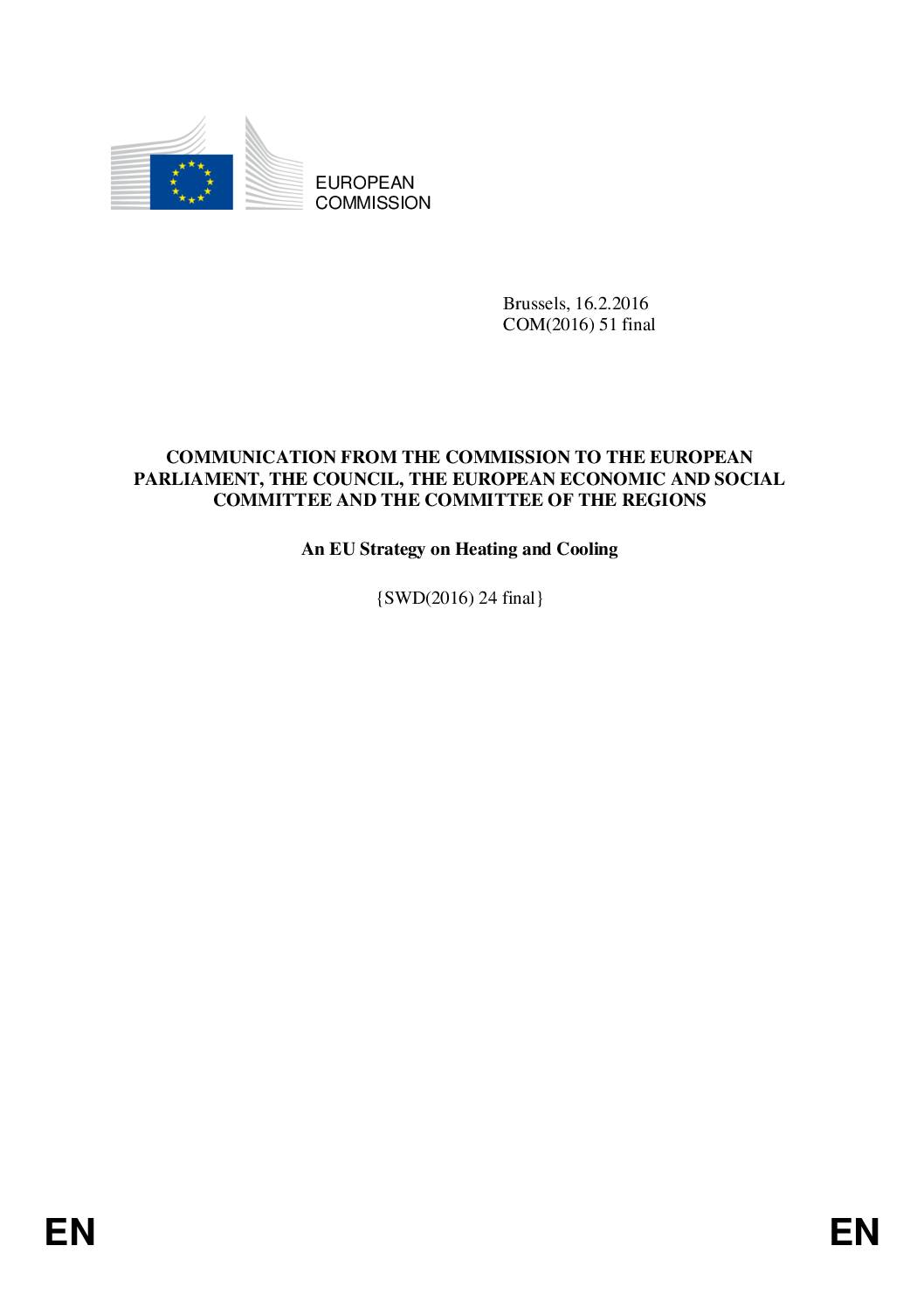With this Communication, released in February 2016, the European Commission presents the first strategy to optimise buildings’ and industries’ heating and cooling in order to tackle the massive use of energy, particularly fossil fuels, in the sector. Heating and cooling accounts for 50% of the energy consumption in the European Union, and renewables account for just 18% of this.
The proposed Heating and Cooling strategy provides a framework for integrating efficient heating and cooling into EU energy policies by focusing action on stopping the energy leakage from buildings, maximising the efficiency and sustainability of heating and cooling systems, supporting efficiency in industry and reaping the benefits of integrating heating and cooling into the electricity system.
This strategy focuses on removing barriers to decarbonisation in buildings and industry. It also stresses that increased energy efficiency and use of renewables will have an impact on energy security. Looking into this sector more strategically is crucial as the EU wants to improve its interdependence from external suppliers.
Furthermore, this strategy aims to ease access to information for consumers, in order to allow them to better understand their energy use and make informed choices that could save energy, as well as inform them on possible energy efficient renovations and options for generating their own energy using renewable energy sources.
Share this

Sectors: Buildings, Cross cutting, District energy, Power sector, Renewables
Country / Region: Europe
Tags: air conditioning, domestic heating, energy, energy efficiency, energy policies, heating, renewable energies, space cooling, sustainabilityKnowledge Object: Publication / Report
Published by: European Commission
Publishing year: 2016
Author: European Commission
